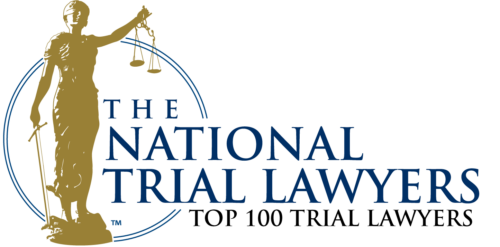Unfortunately, it is not uncommon for car accidents to result in deaths of involved parties. But what happens if the person that caused your injuries died in a crash? Can you still recover compensation for your injuries?
Suppose you were injured in a car accident that also caused the death of the at-fault party. In that case, you should focus on protecting your access to compensation by calling the police and going to the hospital. Victims in these situations can often file a lawsuit but may have to do so against a deceased driver’s estate. This can be a lengthy process and difficult to navigate. After a driver’s estate has been settled, victims can proceed with litigation and seek compensation. Depending on the type of insurance victims have and their injuries, they may be able to recover damages for financial losses and pain and suffering in Pennsylvania.
To set up a free case evaluation with the Pennsylvania personal injury lawyers at The Reiff Law Firm, call us now at (215) 709-6940.
What to Do if an at-Fault Party Dies from a Car Accident in Pennsylvania
Especially serious car accidents might result in all involved parties sustaining severe injuries. Certain injuries might lead to an involved party’s death. Unfortunately, negligent drivers are not immune to suffering catastrophic injuries in an accident they cause. Negligent drivers might even die as a result of their actions. Should you be harmed in a collision that also resulted in the death of the at-fault party, you should do a few things.
Reporting your accident and seeking medical attention is paramount. In Pennsylvania, all accidents that result in death, including the death of an at-fault driver, must be reported to the police. Because our car accident lawyers will most likely have to seek compensation from a deceased driver’s estate, it is important to document the accident and the fact that the deceased driver caused it.
Victims should also go to the hospital like they normally would after an accident that did not result in a death. A negligent driver’s death does not prevent you from seeking compensation by filing a lawsuit, so it is important to create evidence of your injuries and their severity.
Can You File a Car Accident Lawsuit in Pennsylvania if an at-Fault Party Dies?
If you were hurt in an accident that also killed the at-fault driver in Pennsylvania, you might be able to file a lawsuit. The process will differ a bit from a normal car accident case, so victims should learn what to expect.
Often, negligent drivers that die after a car accident succumb to injuries they sustain in a crash. That said, sometimes, at-fault parties die for reasons entirely unrelated to an accident. In either case, you can still file a lawsuit against an at-fault party’s estate to recover compensation.
Before that can happen, the deceased party’s estate must go through the probate process. This can be a lengthy process in and of itself and might delay your lawsuit, which is why filing as soon as possible is important. If the probate process takes too long and you have not yet filed, you may miss Pennsylvania’s two-year statute of limitations.
Suppose our attorneys have filed your claim and are later notified of a defendant’s death. That might cause some disruptions to your lawsuit and delay your recovery. In such a situation, our Lancaster car accident attorneys may have to refile a claim against a decedent’s estate. The statute of limitations continues running in these cases, meaning it’s crucial for victims to act quickly not to miss their opportunity to recover damages.
In the event that a defendant dies within a year of the filing deadline for a case, the statute of limitations for a plaintiff to bring a claim will be extended. In these situations, victims in Pennsylvania will have one year from the date of a negligent party’s death to file a lawsuit for compensation, according to 20 Pa.C.S. § 3383. This might only result in an extension of a few weeks or months, depending on how close to the original filing deadline a defendant died.
What Compensation Can You Recover from an at-Fault Party’s Estate in Pennsylvania?
When the at-fault driver passes away, you sue their estate instead. The estate is the sum total of all of the deceased person’s assets and money, administered and distributed after their death to their heirs. The damages available will typically depend on the car insurance you have opted to purchase in Pennsylvania.
You may find that the deceased driver’s personal representative may want to settle your case out of court. While it is understandable to be sympathetic to their situation in mourning the loss of a loved one, it is also important to prioritize your access to compensation following a car accident. All in all, settlement is not always the best option.
In Pennsylvania, drivers can choose between full tort and limited tort insurance. Limited tort blocks pain and suffering damages unless you have “serious injuries,” but full tort insurance allows you to sue the at-fault driver or their estate for economic and non-economic damages.
In some car accident claims involving a deceased defendant, recovery may be easier for victims. A negligent party won’t be present to provide testimony to discount your claim or provide insight that might be helpful to defense attorneys, and their estate will be reliant on other forms of evidence which may be perceived as weaker. That said, meeting the burden of proof in these types of cases is crucial and can still be challenging, as failure to do so will result in insufficient or no compensation for victims.
Ask Our Attorneys About Your Pennsylvania Car Accident Case
For a free and confidential case review with the Philadelphia car accident lawyers at The Reiff Law Firm, call us today at (215) 709-6940.
Related Posts
- Can You Sure for Injuries Caused by an Assault in Philadelphia?
- How to Get a Police Report After a Car Accident in Bethlehem, PA
- How Often Do Fires Occur at Concerts?
- How Do You Get the Police Report for a Car Accident that Occurred on I-676?
- What Damages Can I Recover from a Car Accident Lawsuit in Pennsylvania?















